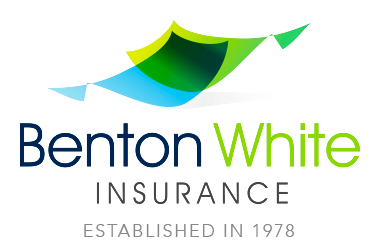Car Insurance. You probably have it, but do you fully understand it? You pay for auto insurance every month, 6 months or yearly and will most likely make a claim or two… or three in your lifetime. It’s important to understand car insurance definitions and coverage types so you buy enough to protect yourself but not more than you need.
Just about everyone who drives has car insurance – but how much do you really know about auto insurance? Car insurance is required in Tennessee but there are many still on Tennessee roads that don’t adhere to the law. Almost all of us buy car insurance, but it has provisions that most people know little about.
With that in mind, let’s spend some time discussing basic car insurance definitions and coverage types. There’s more going on with this common car insurance coverage than most people think, and a little bit of knowledge will make you a savvier owner of your policy.
Why do you have to buy auto insurance?
Almost everywhere, laws require that drivers have car insurance.
Although car insurance protects you — it can pay for your loss in the even your car is crashed, stolen, vandalized, or destroyed by fire — the laws that require car insurance are designed to protect other drivers and pedestrians from you.
For example, if you run down some poor elderly lady crossing the street, your car insurance will pay her hospital bill. And that’s good for both the public and you. (That’s because there is always the possibility that an injured person might sue you, in which case your car insurance can protect you financially.)
If you’re on a tight budget and driving an old vehicle, it might be tempting to save hundreds of dollars and not buy car insurance. But if you put yourself in that elderly lady’s shoes, hopefully you can see why laws require it.
If you were walking down the street and got hit by a drunk driver that didn’t have car insurance, you might have to pay thousands of dollars in hospital bills (or worse) on your own. You could sue the driver (and you would almost certainly win), but if he were broke and didn’t have insurance, there would be no money to collect.
Auto insurance basics
There are six basic provisions in a typical auto insurance policy. We’re going to define four of them here and discuss the other two separately.
Liability Coverage
This is the part of your auto insurance policy that covers damage that you cause to other drivers in an accident. More specifically, liability coverage covers vehicle and property damage. It is a required provision in virtually all auto insurance policies.
Bodily Injury Liability
This is another type of liability coverage, that covers the financial cost of an injury or even death as a result of an accident caused by you. It can cover medical bills, loss of income claims, as well as pain and suffering damages that may come about as a result of legal action. It’s worth noting that bodily injury liability will not cover your own medical expenses.
Property Damage Liability
This covers property damage to another person’s property caused by you. This primarily relates to another person’s vehicle, but it also covers other property, such as real estate and landscaping.
Uninsured and Under-insured Coverage
This provision will cover you in the event that your car is damaged by someone who either doesn‘t have their own auto insurance coverage, or who is under-insured. It covers both liability and collision.
And speaking of collision…
Comprehensive vs. Collision Coverage
We are covering these two provisions separately because they’re often confused with one another. Perhaps it’s because both relate to auto insurance, and both begin with the letter “C”.
So what’s the difference between the two? Here are the definitions for comprehensive insurance and collision insurance.
Comprehensive insurance covers damage to your car, and any other vehicles that you might be driving. However, comprehensive insurance covers damage that is the result of incidents, and not collisions. That includes damage to your car that is the result of vandalism, theft, floods, or a tree falling on it. Every car insurance policy defines specifically what is covered, which is why you should always pay close attention to the fine print.
Collision insurance covers you against damage to your vehicle from an accident, hence the name “collision”. It covers you whether you are hit by someone else, or if you are the cause of the accident.
Both comprehensive and collision coverage have deductibles. The lower your deductible, the higher your premium will be. Conversely, the higher your deductible is, the lower your premium will be.
We’ll get into a discussion of the wisdom of increasing your deductible to save on your premium in a little bit.
Medical coverage
This is a provision you can add to your policy that will cover certain medical expenses. Even if you have health insurance coverage, this provision can help pay for your health insurance deductibles in the event of an accident and is especially valuable to have if you have a high deductible health policy, or no health insurance at all.
Rental Reimbursement Coverage
This provision will provide you with a car rental in the event your car is either damaged or stolen.
Towing and Labor Coverage
This provision will pay for the cost of a tow in the event that your car breaks down and can’t be driven to a mechanic. It often includes on the road service, such as a battery jump, or fixing a flat tire.
How much auto insurance coverage do you need?
Auto insurance coverage levels are typically expressed in a three-number format, that looks like XX/XX/XX.
Each of the three numbers has a specific meaning:
- XX/XX/XX – The bodily injury liability maximum for one person injured in an accident,
- XX/XX/XX – The bodily injury liability maximum for all injuries in one accident (which is why it’s almost always higher than the first number), and
- XX/XX/XX – Property damage liability maximum for one accident.
The primary consideration regarding how much auto insurance you need is usually determined by Tennessee’s minimum auto insurance coverage requirements.
Many people carry nothing more than the state-mandated minimum. This can be a problem, however, particularly if you have a significant amount of assets. While the primary purpose of insurance is to cover car damage and personal injuries, it has an equally important purpose of protecting your financial assets.
The less coverage that you have – down to the state required minimum – the more exposed your financial assets will be to claim or legal action by an injured party. If you have a substantial amount of net worth, you want to carry considerably more than the state-mandated minimums.
How much does the deductible effect your premium?
Your car insurance deductible is the amount you must pay out-of-pocket in the event of claim before insurance kicks in.
Your premium is the amount you pay annually for car insurance.
A favorite way to lower car insurance premiums is to increase your deductible. Sometimes it makes sense, other times…it could be a disaster waiting to happen.
Roughly speaking, if you increase your deductible from $500 to $1,000, you might up to 20 percent on your auto insurance premium. At the extreme, increasing the deductible from $250 to $2,500 could even save you 50 percent.
That’s a big savings, but that doesn’t mean that you should raise your deductible. Before doing so, make sure that you can cover the deductible.
For example, let’s say you have a $500 deductible on a policy that costs $1,500 per year, and you can save $300 — or 20 percent — by increasing the deductible to $1,000. Understand that the $300 you’re saving will more than be offset by the additional $500 you’ll need to put out of pocket to pay the deductible on just one accident.
Here’s something else to consider…increasing your deductible only makes sense if you have the savings to cover it. If you normally have several thousand dollars in savings, increasing the deductible won’t be painful, since you’ll have the cash to cover it. But if you normally have an empty bank account, you’ll be better off with the lower deductible.
Make sense?
Never forget that protection — and not state requirements — are the primary purpose of having auto insurance and be sure to get the coverage level that you need.
We’re here to help you make the right coverage decisions! Don’t hesitate to contact us if we can help.
If we can help you with ANY insurance needs, we’re here and ready to “earn” your trust. TEXT or CALL US at 615.377.1212 or EMAIL us at info@BentonWhite.com.





